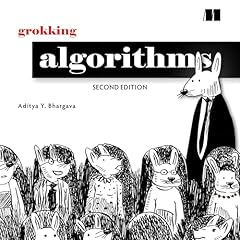
The Signal and the Noise
Why So Many Predictions Fail - but Some Don't
Impossible d'ajouter des articles
Désolé, nous ne sommes pas en mesure d'ajouter l'article car votre panier est déjà plein.
Veuillez réessayer plus tard
Veuillez réessayer plus tard
Échec de l’élimination de la liste d'envies.
Veuillez réessayer plus tard
Impossible de suivre le podcast
Impossible de ne plus suivre le podcast
0,00 € les 60 premiers jours
Offre à durée limitée
3 mois pour 0,99 €/mois
Offre valable jusqu'au 29 janvier 2026 à 23 h 59.
Jusqu'à 90% de réduction sur vos 3 premiers mois.
Écoutez en illimité des milliers de livres audio, podcasts et Audible Originals.
Sans engagement. Vous pouvez annuler votre abonnement chaque mois.
Accédez à des ventes et des offres exclusives.
Écoutez en illimité un large choix de livres audio, créations & podcasts Audible Original et histoires pour enfants.
Recevez 1 crédit audio par mois à échanger contre le titre de votre choix - ce titre vous appartient.
Gratuit avec l'offre d'essai, ensuite 9,95 €/mois. Possibilité de résilier l'abonnement chaque mois.
Acheter pour 14,30 €
-
Lu par :
-
Mike Chamberlain
-
De :
-
Nate Silver
À propos de ce contenu audio
One of The Wall Street Journal’s Ten Best Works of Nonfiction of the Year
“Could turn out to be one of the more momentous books of the decade.”—The New York Times Book Review
Most predictions fail, often at great cost to society, because experts and laypeople mistake more confident predictions for more accurate ones. But overconfidence is often the reason for failure. If our appreciation of uncertainty improves, our predictions can get better too. This is the “prediction paradox”: The more humility we have about our ability to make predictions, the more successful we can be in planning for the future.
Drawing on his own groundbreaking work in sports and politics, Nate Silver examines the world of prediction, investigating how to seek truth from data. In The Signal and the Noise, Silver visits innovative forecasters in a range of areas, from hurricanes to baseball to global pandemics, from the poker table to the stock market, from Capitol Hill to the NBA. He discovers that what the most accurate ones have in common is a superior command of probability—as well as a healthy dose of humility.
With everything from the global economy to the fight against disease hanging on the quality of our predictions, Nate Silver’s insights are an essential read.

Vous êtes membre Amazon Prime ?
Bénéficiez automatiquement de 2 livres audio offerts.Bonne écoute !
Commentaires
"Nate Silver's The Signal and the Noise is The Soul of a New Machine for the 21st century." (Rachel Maddow, author of Drift)
Exiting the world of certainty
Une erreur s'est produite. Réessayez dans quelques minutes.
















